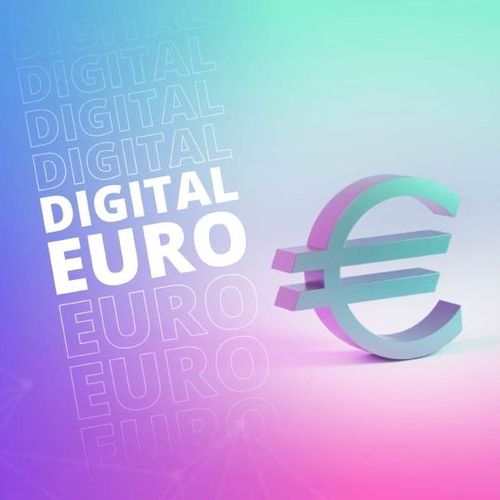Digital Euro: The ECB’s Path to 2025 and Beyond
💶 What’s the Digital Euro and Why Should You Care?
The European Central Bank (ECB) is working hard to wrap up the digital euro project by October 2025 ⏳. But let’s be real—the actual launch? It all depends on legislative approvals 📝 and getting the green light from key players like the European Commission, Parliament, and the Council. The clock’s ticking, but Christine Lagarde, ECB President, made it clear—no progress without these steps.
Why Does the Digital Euro Matter?
Lagarde’s been hyping up the digital euro as a total game-changer, not just for wholesale banking, but for your everyday purchases 🛒. It’s coming in two versions:
- Retail Digital Euro: For regular folks, this will be your go-to for secure transactions, with offline capabilities 🔌 and privacy protections 🔒 to make sure your transactions aren’t being tracked.
- Wholesale Digital Euro: Aimed at banks, this version will make interbank payments faster ⚡ and cross-border transfers smoother 🌍.
The digital euro is super important for Europe to stay ahead in the global race as digital currencies take over 💰. Lagarde’s all in on this—financial sovereignty, people. Europe needs to keep the euro dominant worldwide.
What’s Holding It Back?
The project sounds cool, but there are some big challenges. The biggest one? Privacy 🕵️♀️. A lot of critics are worried the digital euro could give the ECB too much power to track every single transaction, which would feel like big brother vibes. To calm those fears, the ECB is promising top-tier privacy protection 🔐. No one’s watching your every move.
Another big issue is how it might affect traditional banks 🏦. If people start using the digital euro more, bank deposits could dip, which could mess with the stability of the banking system. Oh, and don’t forget about the technical challenges—making sure the digital euro works with existing payment systems.
When Can We Expect It?
The ECB is aiming to wrap up the prep work by October 2025 📅. But even after that, it could take until 2028 before the digital euro is actually here. The Governing Council will have to decide if they’re moving forward after the prep phase, and that might take longer than expected. Some experts think 2028 could be when it finally drops 🎉.
How Does the ECB Compare to Other Digital Currencies?
The digital euro isn’t the only one in the game. China’s digital yuan 🇨🇳 is already ahead, and it’s getting more competitive. The yuan uses blockchain tech for some functions, although its core system doesn’t rely on it. And let’s not forget U.S. stablecoins 💵—they’re pushing the ECB to roll out their digital euro faster.
What’s Next for the Digital Euro?
The ECB is working hard to clear the legal, technical, and regulatory hurdles standing in the way. The project’s moving forward, but the timeline is still uncertain. Whether the digital euro will launch depends on those legislative approvals and solving the big issues. With global competition heating up 🔥, the ECB has a lot to work through if they want Europe to stay ahead in the digital currency race.
🔥 TL;DR:
The digital euro is coming, but it might not launch until 2028. It’s crucial for Europe to stay competitive, with a retail version for everyday users and a wholesale version for banks. But privacy concerns, bank stability, and getting approval from lawmakers are holding it back. Europe needs to act fast to keep pace with China’s digital yuan 🇨🇳 and U.S. stablecoins 💵.

Recent News
All Time High • Live
Have questions or want to collaborate? Reach us at: [email protected]










